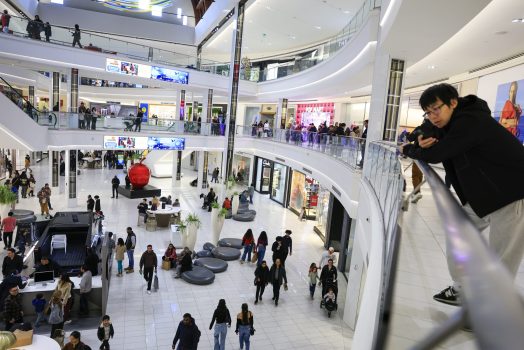
In 1991, a man named Robert Crawford was fined $15 for repairing a broken radiator hose on his van one Sunday while he was visiting his daughter in Prospect Park, N.J.
How could this have happened? At the time, Prospect Park had one of the strictest Sunday-closing laws in the nation. Residents were occasionally fined for mowing their lawns and riding bikes on Sunday. The law was so severe that police sometimes told children playing outside to go indoors.
Crawford contacted the American Civil Liberties Union, which threatened to sue the town over the matter. Wanting to avoid a courtroom showdown, town officials changed the law to ban the sale of some goods and limit loud noises on Sundays.
That was years ago, but it seems some other New Jersey communities still haven’t learned that trying to force people to obey the Christian sabbath is a bad idea. In Bergen County, officials in Paramus are going to court to force the American Dream shopping and entertainment complex to crack down on retailers that are selling clothes on Sundays.
The lawsuit is a good example of the absurdity of Sunday-closing laws (sometimes called “blue laws.”) Bergen County’s law bans the selling of “non-essential” items on Sundays, so some shops in the mall are open, including a theme park where people can ride rollercoasters and frolic in a water park. And since people need to eat, grocery stores and restaurants are open. But Paramus officials insist that other stores should be dark. The mall’s owners, who claim their property is on state land and therefore exempt from Bergen’s laws, have allowed clothing retailers and others to remain open.
Blue laws were once common in America. In Puritan Massachusetts, you could be whipped or slapped in the stocks for working on Sunday. Over time, these laws proved unworkable because there are certain things people need to do (provide emergency care, police communities, put out fires, sell food, sell gas to travelers, etc.) and buy (food, gas, medicine, newspapers, etc.) every day of the week. The laws were always riddled with exceptions. In Anne Arundel County, Md., the site of a challenge to blue laws that reached the U.S. Supreme Court in 1961, a discount store was fined for selling a binder, floor wax, a stapler, and a toy submarine on a Sunday. The state’s blue law limited Sunday sales to food, newspapers and gas.
The Supreme Court, in a poorly reasoned decision, upheld Maryland’s Sunday-closing law, arguing unpersuasively that it had a secular purpose of encouraging rest. It was a stance that made no sense – many stores were open, and workers were not getting a uniform day off; they were simply barred from selling certain items while they were at work. How this encouraged “rest” for retail workers is anyone’s guess.
The situation was too absurd, and blue laws began fading away. People wanted to shop on Sunday, and the jurisdictions that allowed it attracted shoppers, many of whom were happy to travel to another town, county or state to spend their dollars. Communities wanted to keep those dollars at home, so they ditched their blue laws. (However, Project 2025 seeks to revive blue laws by penalizing businesses that open on Sundays.)
Most New Jersey counties followed suit, but for some reason, a few held out. And while you can no longer be fined for fixing a car or mowing your lawn on Sunday in parts of the Garden State, your ability to buy a shirt depends on where you live.
When Prospect Park’s blue law fell, one town resident complained to The New York Times, “The blue law … is in accordance with God’s word in Scripture not to do work on the sabbath.”
I support this fellow’s right to refrain from shopping on Sunday. What I don’t support is his using his religious beliefs to make that decision for everyone else. His sabbath is not everyone’s sabbath. Some non-Christians hold a different day as the sabbath (and let’s not forget that there are some Christian groups that celebrate it on Saturday). Many people don’t recognize a sabbath at all. The laws also penalize shop owners who observe a Saturday sabbath by requiring them to close their business two days a week, causing economic hardship.
Here’s the bottom line: The Bergen County law is archaic and not worth defending. Local officials should dump this relic from the Puritan era and join the rest of the nation in the 21st century.
Photo: Shoppers visit the American Dream Mall. Photo by Kena Betancur/Getty Images.